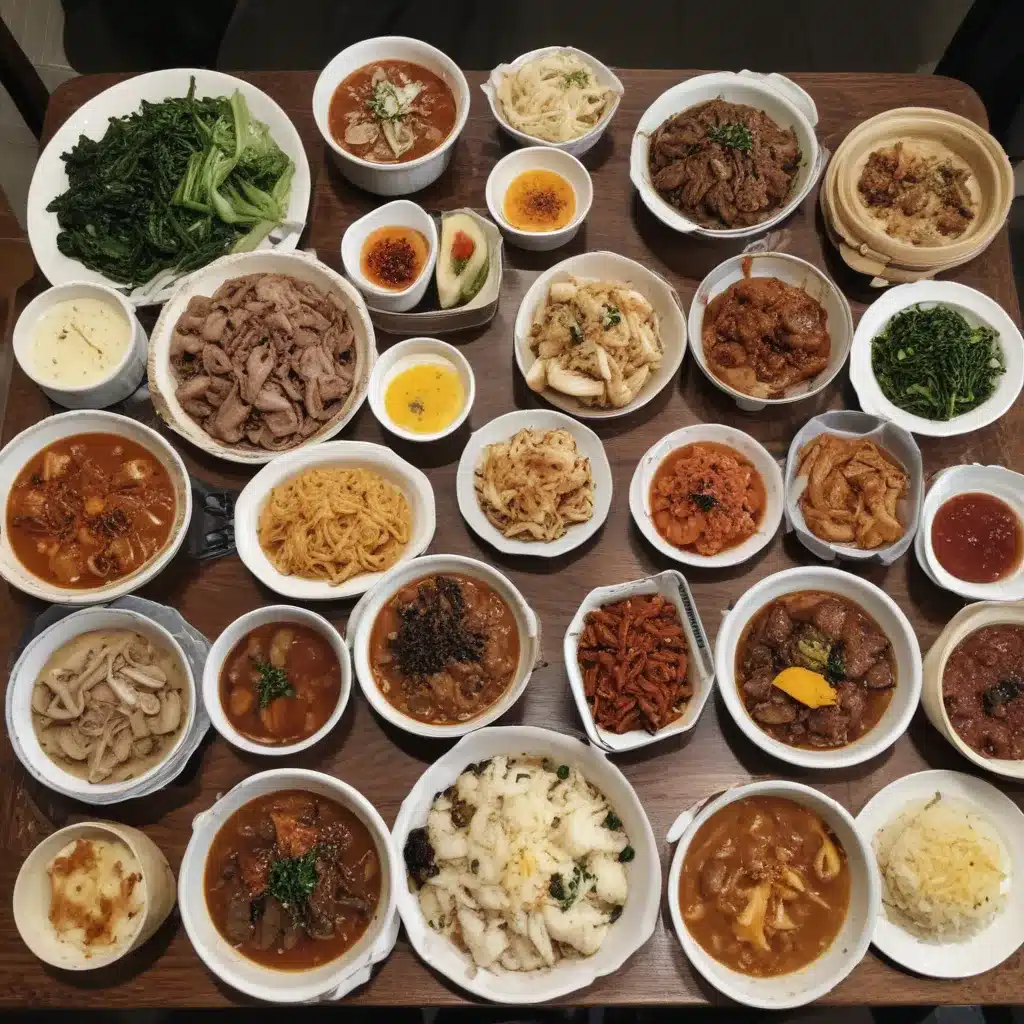
Craving the Flavors of Home
As a Korean-American living in Boston, I’ve often found myself yearning for the comforting tastes of my childhood. The vibrant, umami-rich dishes that filled my family’s kitchen back home in Seoul were a far cry from the New England fare that dominates the local culinary landscape. Sure, the clam chowder and lobster rolls here are delectable in their own right, but sometimes a girl just needs a steaming bowl of kimchi jjigae or a sizzling plate of japchae to soothe the soul, you know?
That’s why I was thrilled to discover a budding Korean home cooking scene quietly taking root across the city. From unassuming mom-and-pop restaurants to passionate home cooks hosting private supper clubs, these sanctuaries of authentic flavors have become a lifeline for expats and Korean-Americans like myself. So join me as I take you on a delicious journey through Boston’s unexpected Korean comfort food oasis. Trust me, your taste buds are in for a treat.
The Homemade Difference
What sets these Korean home-cooked meals apart from the typical Korean restaurant fare? It’s all about that special touch – the kind that can only come from generations-old family recipes and love-infused preparation. Take, for example, the bulgogi I sampled at a recent underground supper club. The thinly sliced beef was so melt-in-your-mouth tender, it practically dissolved on my tongue. And the secret marinade, a closely guarded family formula passed down through the ages, lent the dish a depth of flavor that no commercial restaurant could replicate.
Similarly, the kimchi at Korean Garden Boston – a small, family-run eatery in Allston – tastes leagues above the jarred stuff you’d find at the grocery store. The owner, Mrs. Kim, spends hours meticulously hand-chopping the cabbage, meticulously balancing the spices, and letting the mixture ferment to perfection. It’s a labor of love that infuses every bite with an almost otherworldly complexity.
And then there are the little touches that make all the difference – the way the doenjang (fermented soybean paste) is whisked into the jjigae to create a silky, umami-packed broth; the precise technique used to pan-fry the japchae noodles to achieve that ideal chewy-yet-crisp texture. It’s these nuanced details that transform a mere meal into a true culinary experience.
The Warmth of Community
But Korean home cooking in Boston is about more than just amazing food. It’s also about fostering a sense of community and connection for those of us far from our roots. When I step into places like Korean Garden Boston, I’m immediately transported back to my grandmother’s kitchen – the familiar aromas, the sizzling sounds, the welcoming smiles of the staff. It’s a little piece of home in a foreign city.
And the underground supper clubs I’ve attended have been just as much about the camaraderie as the cuisine. Gathered around a communal table, we swap stories of growing up Korean, sharing in the universal joys and challenges of the immigrant experience. There’s a palpable sense of kinship, a feeling of belonging that’s hard to come by in the often-isolating world of big-city living.
Perhaps most importantly, these intimate gatherings provide a vital link to our cultural heritage. As we savor every bite of the homemade dishes, we’re not just nourishing our bodies – we’re nourishing our souls. Each flavor, each texture, each presentation is a tangible connection to our ancestral roots, a way to keep those traditions alive even thousands of miles from the homeland.
A Culinary Renaissance
So what’s behind this blossoming of Korean home cooking in Boston? In part, it’s a reflection of the city’s rapidly diversifying population. As more and more Koreans (and Korean-Americans) have flocked to the area for work, school, and life, the demand for authentic, comforting flavors has surged.
But it’s also indicative of a broader cultural shift. Korean cuisine, once relegated to the exotic “ethnic food” section, is now enjoying a well-deserved moment in the global culinary spotlight. From the explosion of Korean barbecue joints to the rise of kimchi-infused everything, Korean flavors have well and truly gone mainstream. And that’s creating a newfound appreciation for the homespun, time-honored recipes that form the backbone of the cuisine.
And let’s not forget the influence of the Korean pop culture wave, or “Hallyu,” that’s swept the world in recent years. As dramas, music, and movies featuring mouthwatering Korean dishes have captivated global audiences, it’s only natural that the hunger for the real deal has grown. Suddenly, those nostalgic cravings for mom’s kimchi fried rice or grandma’s Korean beef stew have become universally relatable.
The Future of Korean Comfort
So what does the future hold for Korean home cooking in Boston? If the current trends are any indication, I’d say the outlook is deliciously bright. As more and more people discover the heart-warming joys of these authentic, family-style dishes, I anticipate a continued proliferation of intimate, homespun eateries and underground supper clubs.
And who knows – perhaps we’ll even see a new generation of Boston-based Korean chefs and home cooks stepping into the spotlight, putting their own creative spin on traditional recipes and bringing the flavors of their heritage to the forefront. After all, the city’s culinary scene has long been ripe for a Korean revolution.
In the meantime, I’ll keep savoring every bite of that kimchi jjigae, every morsel of that japchae, every succulent slice of bulgogi. Because for me, and countless others like me, these dishes aren’t just food – they’re a direct line to our roots, a balm for the soul, a taste of home in a city far, far away. And that’s something truly worth celebrating.
